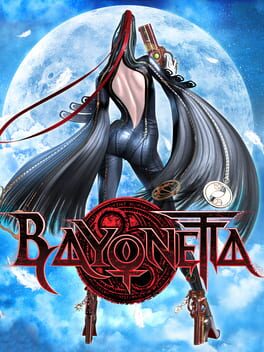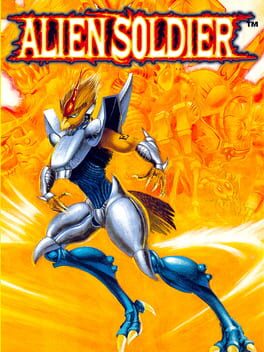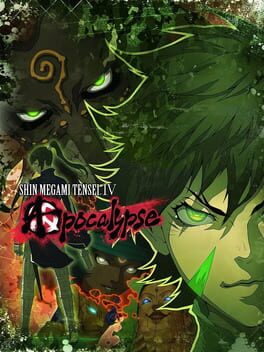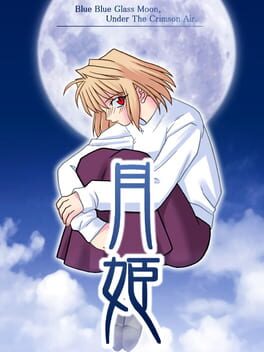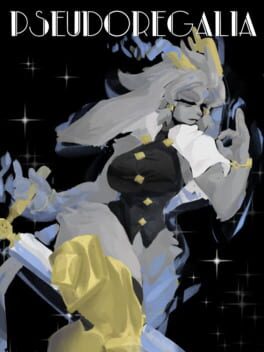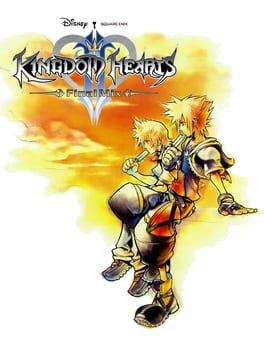wondermagenta
game design graduate; i make streams and ramble videos and reviews too sometimes
PLAY MY GAME: https://wondermagenta.itch.io/discoep
watch my videos: https://youtube.com/wondermagenta
Badges

GOTY '23
Participated in the 2023 Game of the Year Event

Treasured
Gained 750+ total review likes

Pinged
Mentioned by another user

GOTY '22
Participated in the 2022 Game of the Year Event

Famous
Gained 100+ followers

Gone Gold
Received 5+ likes on a review while featured on the front page

3 Years of Service
Being part of the Backloggd community for 3 years

Donor
Liked 50+ reviews / lists

Adored
Gained 300+ total review likes

Best Friends
Become mutual friends with at least 3 others

Busy Day
Journaled 5+ games in a single day

GOTY '21
Participated in the 2021 Game of the Year Event

Trend Setter
Gained 50+ followers

Loved
Gained 100+ total review likes

Well Written
Gained 10+ likes on a single review

Popular
Gained 15+ followers

Liked
Gained 10+ total review likes

Noticed
Gained 3+ followers
Favorite Games
073
Total Games Played
008
Played in 2024
001
Games Backloggd
Recently Played See More
Recently Reviewed See More
Spoilers for Chapter One.
Completed the first “door” and decided I wouldn’t finish the game; everything I say in this review is limited to that opening vignette. What’s set up here is certainly well-intentioned: three central characters, each on the verge of adulthood and trapped by the rigidly defined gender roles and class structures of their 1600s environment and bearing the weight of several conflicting needs. However, in the two hours I spent with Fata Morgana, the game world’s overarching patriarchal capitalist system isn’t seriously interrogated or explored. There are a number of supporting adult characters subtly maintaining the oppressive framework: the priest insisting Mell marry within his class, Nellie’s chosen fiancée Arthur, solely interested in keeping up appearances, Nellie and Mell’s parents, the owners of the house exerting their influence from afar; a larger societal order and hierarchy are clearly hinted at, offering a possible canvas for the game to seize upon the concrete mechanics undergirding this type of systematic oppression, perhaps even explore potential solutions. This isn’t something Fata Morgana seems to be interested in, however: the characters perpetuating the system either have no lines at all (the mother and father) or only speak from off-screen! We only receive surface-level insight into this world’s politics and social dynamics, which is enough to rationalize the chain of events presented in the plot, but bereft of any deeper knowledge or meaning for the reader to extract.
We’re therefore presented with a relatively narrow character drama. This isn’t a flaw with the story necessarily — whatever you end up focusing on, it just needs to be compelling somehow. Unfortunately, what we do get is incredibly banal squabbles and eyeroll-inducing escalations that feel designed for shock value rather than to provide deeper insight. “Why won’t you spend more time with me dearest brother, you’re the only one for me,” “Okay number one that’s weird (you’re my sister,) number two I just fell in love with this white-haired chick at first sight,” “Didn’t you tell me you haven’t even met her yet? 🤨” “Uhm uhm.” In a word, the level of emotional strife and disagreeing motivations here comes across as juvenile; you might say this is because these characters are literally kids and that that’s kind of the point, but that’s not actually what I mean. It feels quaint to be reading this unremarkable back-and-forth dialogue about who spends too much time with whom, who has feelings for whom and who is instantly bewitched by whose beauty in a game about conventionally attractive people regularly described as such; specifically when you have books and films like A Girl on the Shore or How to Have Sex that navigate what I find to be much more challenging and actually-applicable-to-real-life topics like the intersection of romance, the craving for bodily intimacy and self-worth in subtle, artful and original ways. I’m throwing around a lot of adjectives here so I hope you’ll just see where I’m coming from and not ask for more specific scene-analyses LOL but I suppose this point in particular I’d be curious to hear more thoughts on.
To get at least a little more specific, Nellie’s character is a painful example of the jealous-friendzoned-girl doing a textbook version of the “I’m gonna pull some strings to make my object of desire think he has no chance with the bitch I’m competing with” trope. The misunderstandings pile up in the exact way you’d expect, until Nellie, devastated by the arranged marriage looming over her head and Mell’s apathy toward the situation, suffers a psychotic episode in which she physically assaults the white-haired girl and makes an explicitly sexual, non-consensual advance toward her brother. Since I’m critiquing the effectiveness and value of this type of writing, I feel the need to point out that any given player’s reaction to this arc will be incredibly subjective. If Metacritic and backloggd are any indication, you’ll likely have left off with a much different impression than I did, and it may be hard to see where I’m coming from (maybe you can tell that this is very different from my usual mechanics-focused analyses and that I have to reason from a mostly emotional angle LOL.) The argument I will make is that Nellie is an undeniable victim of an oppressive system, and yet she’s the only character in this self-contained story to carry out serious physical violence against another victim; and to me this does not function as effective critique of the system! (Quick aside, I had a very similar issue with Last Night in Soho’s final third and that shit seems way less bad in comparison now LOL) Instead, it comes across as unsympathetic and callous. Nellie is not just trapped by the patriarchy, but her incestual feelings toward Mell, and rather than seriously explore the internal whirlwind and self-analysis you’d expect to be part of that experience in any kind of depth, it genuinely feels more-so used as a way to gross out the player and lean into incredibly distasteful “freaky” Yandere iconography.
I can lay out all the plot beats and see the themes that are being touched on and understand the rationalizations being presented, but it doesn’t change the fact that presentation is narrative just as much as that Wikipedia summary. And in presentation, moment-to-moment, what I played of Fata Morgana rarely reaches past shallow, puerile and cowardly. I say “rarely” because as eyeroll-worthy as the aforementioned love-at-first-sight dynamic between Mell and the white-haired girl is, once they did confess their feelings to each other I couldn’t help but be surprisingly endeared by the hopelessly romantic prose and sensitive staging employed by the scene. The strength, or lack thereof, of the white-haired girl’s grip over Mell’s neck is something visual novels are uniquely poised to convey, in this case by suddenly flipping between slight alterations in otherwise static illustrations and buoy them with careful descriptions of subtle movements and bodily expressions.
But I also said the game was cowardly, because I can’t help but question its worldview when it chooses to have the white-haired girl “disfigured” by Nellie and then completely refuses to show her on-screen again from that point forward. I already noted earlier that Fata Morgana places repeated emphasis on conventional beauty, and flirting with this topic so much while blatantly skirting around any kind of alternative portrayal seems damning in my eyes. Mell’s assurances that he’ll love her regardless of her appearance can only read as hollow when the game doesn’t even seem to love its own characters enough to give them that kind of respect.
Fata Morgana consisting of, to my knowledge, at least a few largely self-contained stories has me relatively confident in the validity of this review; the main game does not revisit this particular scenario past what I played from what I understand. You might still think that this is shaky ground for me to stand on, but the entire point I hope I made here is that as a storyteller, you’re communicating things to your audience from minute one. If this opening isn’t an accurate representation of the game as a whole, then what was the point of it? If I’m to expect crucial subversions deeper into the story, how am I supposed to believe that they are any more tasteful or substantive than the dramatic turns utilized here? If the game spends two hours on this completely unoriginal love triangle, how will it tackle more difficult subjects? I’ve experienced complete, rich stories in that time-span, stories that consider their themes just as much as their form. I can certainly have Fata Morgana’s themes explained to me by its fans and acknowledge the sincerity ultimately laying beneath, but what I really needed in those two hours is for Novectacle to convince me they’re equipped to tell this kind of story; and I can’t say that I am.
That intrusive thought verbalized, it doesn’t change how I feel about the game itself. Not sure I have more to add on top of what I said in this video: https://youtu.be/RYdFpv9Ay7o?si=XKNPVk13CDzhNzn8


